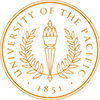Are you planning to study abroad but worried about your backlogs? Many students face the same challenge and wonder if their backlogs will affect their study abroad plans.
We will explore the impact of backlogs on your study abroad plan and the tips you can consider to overcome them.
Whether you’re just starting to think about studying abroad or are ready to start the application process, this article will provide you with valuable information to help you navigate the process. Before diving in, it’s important to understand what are backlogs in studies.
What are Backlogs?
In the context of higher education, a backlog refers to a course or subject that a student has failed or has not yet completed. It is common in universities and colleges that students have to clear specific courses or subjects in order to progress to the next level of their academic program.
A student with backlogs has failed to clear the required number of courses or subjects in a given semester or academic year and will have to take them again in the next semester or academic year. This can delay their graduation and impact their overall academic performance. It’s necessary to learn how to clear backlogs in degrees in order to move students’ academic journey.
What is an active and a dead backlog?
Exams that the applicant has not yet passed are known as active backlogs, while exams that they have already passed are known as dead backlogs. One question that often pops in parents’ and students’ minds is “whether dead backlogs have an impact on placement or not”. A dead backlog doesn’t affect the placement as it has been cleared. But backlogs play a major role in your study abroad plans and impede visa processing in case of dead backlogs.
How are Backlogs Counted?
Understanding how backlogs are counted is essential for all the aspirants. To broadly categorize the methods of calculating the backlogs are:
- Based on attempts
- Based on subject count
What is the number of attempts method?
In this method, the number of backlogs is calculated on the basis of the number of attempts taken to clear the exam. For example, if you have cleared a particular exam in four attempts, then your backlog will be counted as 4 even when the subject was only one.
This method is commonly used in universities in Australia, Germany and many universities in Canada.
What is the subject count method?
In this method, the subjects are taken into consideration irrespective of the number of attempts you have taken to clear the exam. For example, if you have appeared for one particular subject four times, your backlog will be considered one only, not four.
This method is common in the USA, UK and Canada.
What is a backlog certificate?
A backlog certificate is a document provided by a college or university that confirms that a student has cleared all their pending subjects. If a student has not failed any subjects, they will not receive a backlog certificate, although they can request a certificate that verifies their academic record without any backlogs.
The certificate is issued once the student has successfully passed all the required subjects or courses and cleared backlogs. This certificate is proof that the student has completed the degree and all the requirements to graduate. It is also requested by many organizations and companies when they hire a new employee who has a backlog in their degree.
Countries Accepting Backlogs
Despite having backlog records, students can still reach their higher education goals by understanding what backlogs are and the varying criteria for admission in each country. Australia, Canada, the UK and the USA all have different regulations when it comes to accepting student applications with prior academic backlogs incurred.
Australia
In Australia, private and public universities generally have a more lenient policy when it comes to accepting students with backlogs, with most allowing up to seven or eight. The Group of Eight, however, which is a group of leading universities in the country, only accepts a maximum of 2-3 backlogs.
Canada
Most universities will accept a maximum of five backlogs, provided that the student has a minimum aggregate of 70% in their previous study qualification. For postgraduate programs, however, the acceptance criteria may be more lenient, with many universities allowing up to seven or eight backlogs, as long as the student has a minimum aggregate of 65% in their bachelor’s degree.
UK
When applying to universities in the United Kingdom, students with 15 backlogs are accepted. UK universities, however, place a strong emphasis on English language proficiency. To be considered for admission, students must score an overall band of 6 on their IELTS exam, which is an internationally recognized English language proficiency test.
USA
Universities in the USA prefer students who do not have any backlog records. For students who do have backlogs, however, some universities may still consider their application if they have a strong performance on the GRE, which is a standardized test used by many graduate programs in the United States. A score between 315 and 325 is considered good, and with this, a student might be able to secure admission with a maximum of 5 backlogs.
New Zealand
The universities of New Zealand accept students with less than five backlogs, but in some cases, it may go higher to 12 to 15 backlogs, depending on the university and the course.
For students with backlogs seeking admission to New Zealand universities, having a good IELTS score is important. A score of 6.5 in IELTS, as well as any tangible research project and enough extracurricular activities, can help back up backlogs and increase admission chances.
Ireland
Irish universities and institutes accept students with a maximum of four to five backlogs. This number may increase or decrease depending on the university and the course.
How to manage backlog records?
Managing your backlog record can be done by taking the following steps:
Be well-prepared for exams
Avoiding backlogs in the first place is the most effective way to manage them. This can be achieved by putting in the necessary effort to study and pass exams on the first attempt.
Keep track of important topics
Create notes while studying so you can refer to them when revising.
Plan of action
Create a to-do list of tasks to keep yourself organized and avoid feeling overwhelmed by the pressure of exams.
Prioritize subjects
Give priority to your weekly subjects and focus more on them to ensure you pass them.
Seek help
Reach out to your teacher or professor to ask for extra credits or projects to balance your marks.
How to strengthen your profile if you have backlogs?
Backlogs are acceptable, but you will have to defend them to the admissions committee.
- Develop a compelling student profile by emphasizing your involvement in extracurricular activities.
- In your SOP, emphasize the sincere rationale and your enthusiasm for the course selection.
- Honestly, describe your backlogs and the events that transpired during that time.
- Get ready for the standardized entrance exam.
Key Takeaways
Diligent preparation of knowing how to clear backlogs in degree is a key factor when aspiring to find admission despite having it in your academic record. Critical decision-making coupled with taking help from our overseas education consultants can be important steps towards successful enrolments in universities abroad despite having backlogs in your academic records.
Countless opportunities are available around the world for Indian students who choose to pursue higher education abroad, even with backlogs, as long as they make well-thought decisions while choosing their study program and university.















































